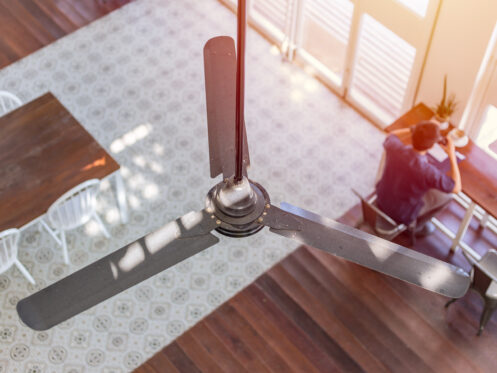Do Ceiling Fans Save You Money On Energy Bills?
Many homes use ceiling fans as an efficient and cost-effective way to cool a room. Not only do they provide relief from the hot air of summer, but they can also help save money on electric bills. By circulating air throughout the space, ceiling fans allow people to feel cooler without drastically lowering the thermostat’s temperature. This is an energy-efficient alternative to using air conditioning, which uses more electricity and significantly reduces electricity costs. Additionally, a ceiling fan running in reverse during winter helps push the hot air that rises near the ceiling back down into the living space for better warmth distribution throughout the house. Taking advantage of these benefits means saving money on your electric bills year-round!
Will Ceiling Fans Increase Air Pollutants?
While ceiling fans do not typically affect the air quality in a room, it’s important to consider their impact on air pollutants. Some experts argue that fans can increase dust and pollen levels which might worsen existing respiratory issues for some individuals. Additionally, if a fan is not regularly cleaned and maintained, it could accumulate dirt and other particles that could be detrimental to air quality. It may also be advisable to research indoor air pollution ratings for specific models of ceiling fans before purchasing one to protect against airborne pollutants.
Do The Ceiling Fans Mess With The Thermostat If There Located In The Same Room?
If you have a fan running in the same room as your thermostat, there’s a chance that it could slightly mess with the accuracy of the thermostat. The air movement created by the fan circulating air could cause your thermostat to register a higher temperature than what exists in the room, causing it to cut off your air conditioning earlier than usual. If this occurs, you will likely notice extra humidity and higher temperatures once the air has stopped blowing. To get around this issue, you might consider relocating your thermostat or fan to another area so they are not near each other.








